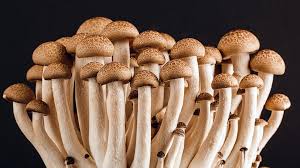
Magic Mushrooms Show Promise in Easing Depression Among Cancer Patients, New Study Finds
A single dose of psilocybin, the active compound found in so-called magic mushrooms, could offer long-lasting relief from depression and anxiety for cancer patients—potentially revolutionizing mental health support for those facing life-threatening illness.
According to a small-scale phase 2 clinical trial published on June 16 in the journal Cancer, a single 25-milligram dose of psilocybin, administered under the guidance of a therapist, resulted in significant and sustained reductions in depression for nearly half of the 28 participants—all of whom were diagnosed with cancer and major depressive disorder.
Dr. Manish Agrawal, the lead researcher and CEO/co-founder of Sunstone Therapies, emphasized the long-term impact of the psychedelic-assisted session. “One dose of psilocybin with psychological support has a long-term positive impact on relieving depression for as much as two years for a substantial portion of patients with cancer,” he said in a news release. “We’re now exploring whether repeating the treatment can provide relief for even more patients.”
Depression affects approximately one in four cancer patients, and can significantly lower their quality of life and survival outcomes. For these patients, conventional antidepressants often fall short or take weeks to show results. Psilocybin, however, appears to offer rapid and lasting improvement.
Two years after their single psilocybin-assisted session, 25% of participants remained depression-free without needing any additional antidepressants or psychedelic treatment. Additionally, 43% reported long-term reductions in anxiety, further highlighting the potential for psilocybin-assisted therapy to provide comprehensive emotional relief.
Importantly, researchers pointed out that the benefits were only observed in a guided setting. Unsupervised or recreational use of psilocybin has not shown the same outcomes, reinforcing the need for therapist-led sessions for safety and effectiveness.
While the results are promising, Dr. Agrawal and his team are calling for larger, randomized controlled trials to validate the findings. These trials would serve as the gold standard for assessing psilocybin’s potential in clinical settings.
“If randomized testing shows similar results, this could lead to greater use of psilocybin to treat depression in patients with cancer,” Agrawal noted.
The findings come at a time when interest in psychedelics as a tool for mental health is growing rapidly. In the U.S., states like Texas are funding research into other psychedelic compounds, such as ibogaine, for treating addiction, depression, and traumatic brain injuries—despite its current status as a banned substance.
As more studies emerge, psilocybin could become part of a new wave of treatments offering hope and healing to patients who need it most—especially those navigating the emotional toll of cancer.